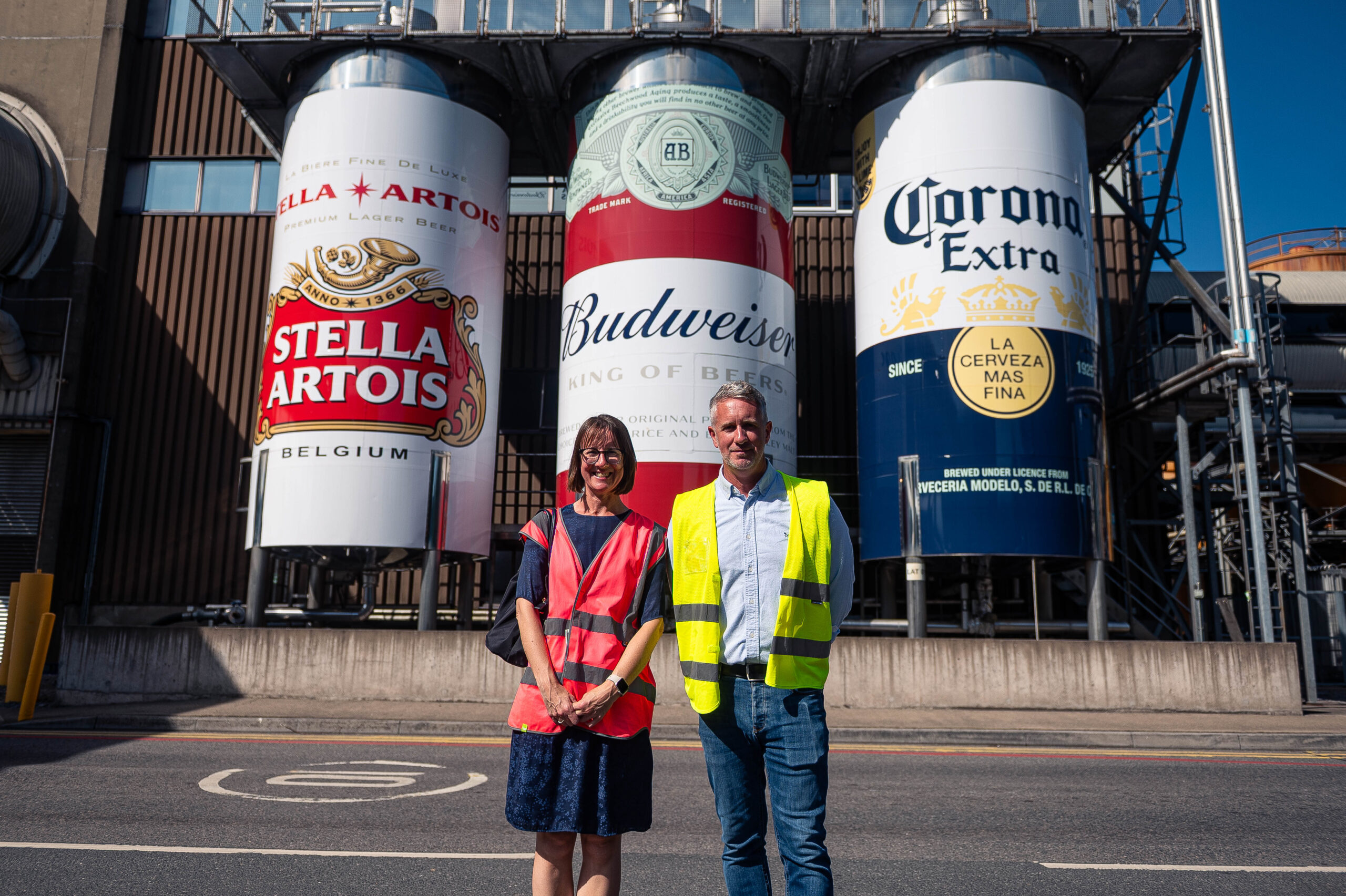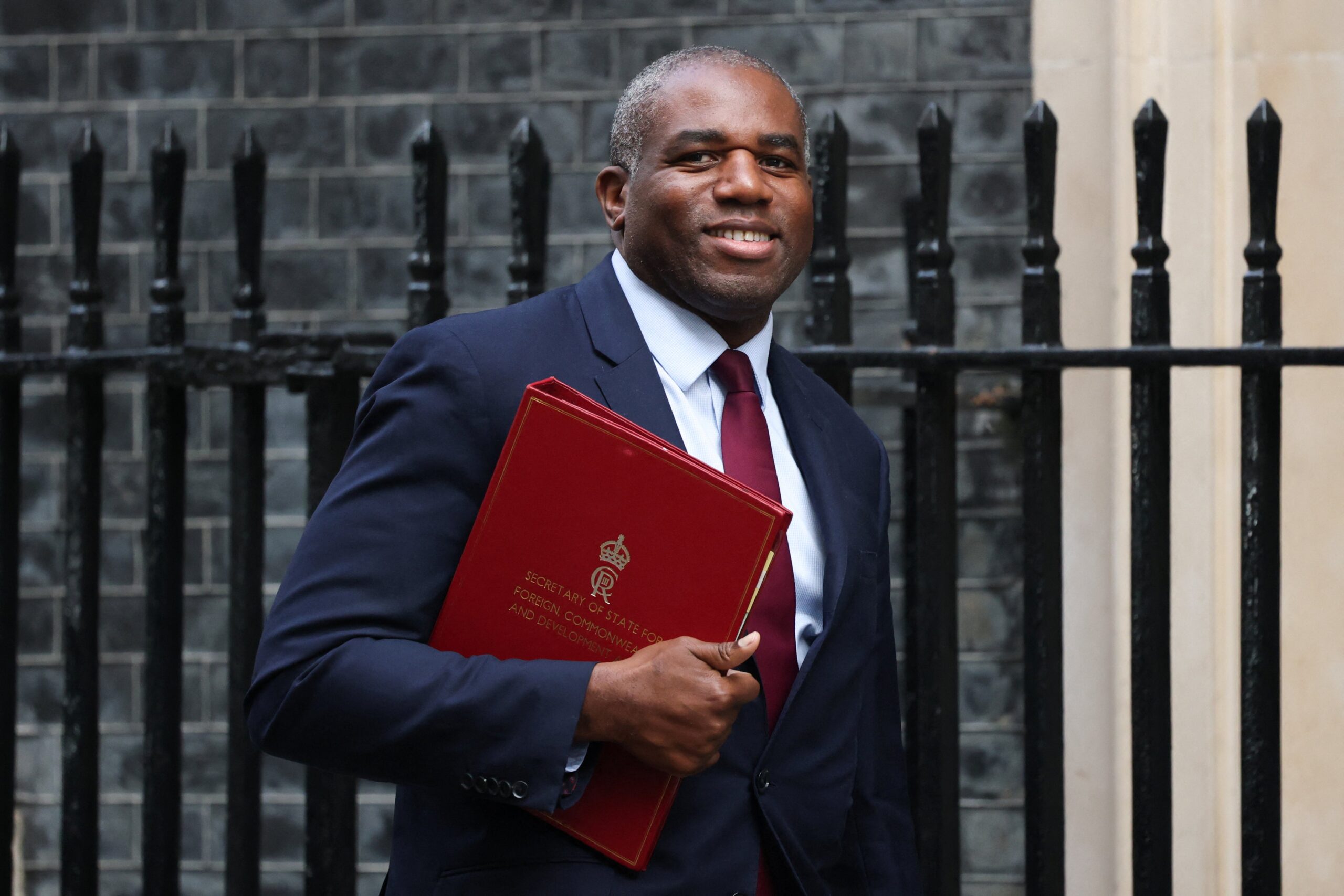David Lammy has brought a team of Britain’s elite diplomats home in a bid to finally kickstart economic growth and combat the global impact of Donald Trump’s tariffs.
Senior ambassadors and high commissioners have come back to the UK to take part in a roadshow around the country to encourage businesses to export more and link up with the countries they are posted in.
It comes as the E-Commerce Trade Commission recently reported that 70,000 businesses in Britain which are ready to export still are not exporting.
The commission estimated that £7bn of growth could be unlocked in the economy if UK businesses fulfil their potential linking up with foreign markets.
With economic growth in the UK at a mere 0.7 per cent for the first quarter and concerns that a failure to hit potential has left an unwelcome £18bn hole in chancellor Rachel Reeves’ budget the government is desperate to use all its resources to turn things around.

There was speculation that the mounting pressure on the chancellor combined with needing to find another £5bn after welfare cuts were abandoned was the reason she was in tears during PMQs on Wednesday.
There have been concerns as well that while the UK mitigated the effect of Trump’s tariffs in its trading relationship with a deal struck by Keir Starmer, the wider impact on business confidence and global supply chains continues to be a problem.
The decision to deploy senior diplomats follows an instruction by the prime minister that all departments need to take part in delivering economic growth.
In a speech at the British Chambers of Commerce in March, the foreign secretary laid out a “new partnership between government and business” to drive economic growth in the UK and ensure this Government is delivering for the British public.
Speaking to The Independent about the diplomats roadshow, he said: “Our ambassadors and high commissioners are the salesforce for the UK economy.
“Through this roadshow, my top diplomats are meeting mayors and regional businesses to discuss trade and investment opportunities and strike new partnerships, ultimately so they can champion the UK’s interests overseas and deliver growth.
“In this government’s ‘Plan for Change’, the economic interests of British businesses sits at the heart of our foreign policy.”
The roadshow follows the launch of the government’s landmark modern Industrial Strategy, with each roadshow stop designed to target one of the eight growth sectors, including defence, clean energy, life sciences, digital tech, advanced manufacturing, and services.
On Thursday last week Britain’s Ambassador to Japan Julia Longbottom visited Portsmouth with more than 10 visits taking place last week and more planned throughout the summer and into the Autumn.

Ms Longbottom visited British hovercraft manufacturers Griffon Marine, which has a multi-million-pound deal with the authorities in Japan’s Oita Prefecture to provide vital passenger services connecting Oita Airport in Kunisaki with Oita City.
She said: “I was particularly excited by Portsmouth’s strong defence industrial base, cutting-edge technology, and advanced manufacturing sector, all fantastic opportunities for partnership with Japan.”
On Monday, ambassador to Belgium Anne Sherriff visited South Wales for a meeting with the Welsh Government’s Director for International Relations. She also visited CSA Catapult, a not-for-profit research and technology organisation based in Newport which supports start-ups, SMEs, large organisations, and academia to commercialise compound semiconductor technologies.
The first roadshow kicked off last week with ambassador to South Korea, Colin Crooks, headed to the North East of England. The ambassador visited firms linked to clean energy with a tour of the Tees Works freeport and met with the UK chief executive of SeAH Wind, a South Korean company constructing a wind turbine manufacturing facility in Teesside.
Meanwhile Joelle Jenny, the ambassador to Denmark, visited Lincolnshire, while Ed Llewellyn, the ambassador to Italy, went to South Yorkshire.
The roadshow will build on the £86 billion boost to the science and tech sectors announced in the Spending Review, which backed UK regions to take cutting-edge research into their own hands.
The research and development package means local leaders have government backing to develop “innovation clusters” across the country, to unlock the talent and opportunity in every region and nation.
